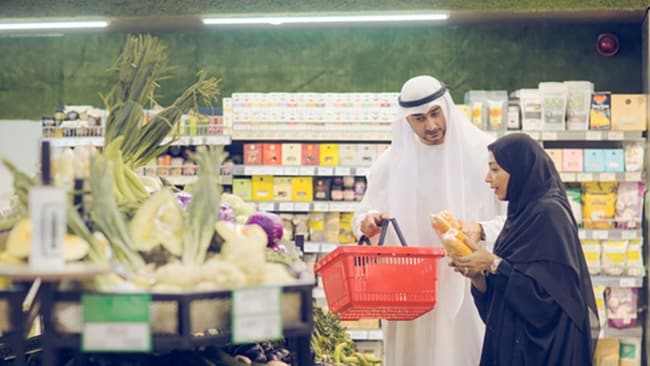Despite its vast resources, the Middle East faces a critical challenge: ensuring a reliable food supply. The region faces challenges such as arid climates, a scarcity of arable land, and a reliance on food imports, making it vulnerable to external shocks and price volatility. With limited rainfall and heavily tapped aquifers, traditional open-field agriculture becomes unsustainable. Furthermore, less than 2% of the Arabian Peninsula is considered arable, necessitating innovation in place of traditional cultivation methods to drive growth, especially as populations grow.
Agricultural technology or Agritech offers a promising solution to these challenges.
What is Agritech?
Agritech refers to the use of technology, such as automation, biotech, information monitoring, data analysis and many more, to improve the efficiency, yield and profitability of agriculture. Agritech is also sometimes commonly called as ag-tech, agtech or digital agriculture.
Nations such as Saudi Arabia and the United Arab Emirates (UAE) can pave the way for a more sustainable and self-sufficient future by leveraging the power of technology. Agritech provides a set of tools that can be used to tackle various agricultural challenges faced in the region with water management being one of the most important areas being addressed.
Controlled Environment Agriculture (CEA), the practice of producing plants inside structures such as greenhouses, has provided a way to streamline agricultural production while using less water and space. CEA optimizes growing conditions using advanced technologies and a wide range of techniques, including vertical farms and greenhouses. CEA enables year-round production in enclosed spaces while reducing the use of critical resources such as water.
The Kingdom of Saudi Arabia is using hydroponics to reduce the growth cycle of crops by up to 50%. The Saudi Agricultural Development Fund intends to continue developing controlled environments and high-tech greenhouses such as vertical farms and hydroponics, with USD 220 million for disbursement to the development of vertical farms by 2025. In 2023, Saudi Arabia's Public Investment Fund announced plans to construct a number of indoor vertical farms in the region.
Similarly, Dubai is home to the world's largest vertical farm, as the United Arab Emirates seeks to boost agricultural production to meet rising demand and play a larger role in the global food trade. The 330,000-square-foot facility is said to use up to 95% less water than traditional farming methods. The opening of a multipurpose vertical farm in AgriTech Park in Abu Dhabi illustrates the UAE's efforts to advance indoor farming.
Furthermore, the use of artificial intelligence (AI), machine learning, big data analytics, and Internet of Things (IoT) technology to connect sensors creates a significant opportunity within the context of precision agriculture. The sensors monitor moisture, temperature, nutrient levels in the soil, and a variety of other factors, allowing for precise and targeted input application and stimulus control to reduce waste and ensure optimal growth conditions.
The incorporation of data analytics and artificial intelligence (AI) into farming practices allows for predictive modelling, crop monitoring, and efficient resource allocation. Smart farming techniques can improve the use of fertilizers, pesticides, and other inputs, lowering waste and environmental impact. This not only promotes sustainable agricultural practices, but it also increases overall resilience in the face of unpredictable weather conditions.
The Role of Agritech Training
While there is interest and investor confidence in agritech in the Middle East, it is critical to involve farmers by upskilling them so they can operate and efficiently utilize the emerging technologies. In the United Arab Emirates, for example, the Khalifa University has signed an agreement with Silal, an AgriTech firm based in the UAE, to support research and development of agriculture-related technologies as well as training programs for the university’s students and farmers.
Recognising the value of training in agriculture, the Saudi Arabian National Development Fund is calling for investment in the Kingdom’s agricultural workforce by providing upskilling in modern agricultural methods and technologies.
By offering upskilling opportunities in modern agricultural methods and technologies, these initiatives aim to empower farmers and enhance the efficiency and sustainability of agricultural practices in the region.
Growth Opportunities of Leveraging Agritech and the Ideal Logistics
The Middle East's ability to embrace innovation is critical to the future of its food security. By leveraging the power of agritech, the region can make significant progress toward self-sufficiency while also creating a more resilient and sustainable food system for future generations. As the region continues to invest in research, education, and supportive policies, the seeds planted today will blossom into a future of food security and self-reliance.
However, achieving this goal necessitates not only advances in agriculture with agritech, but also the concurrent development and expansion of supporting industries such as logistics and transportation. While agritech will help to increase the agricultural output in the region, a well-functioning and efficient supply chain is required to ensure the smooth transportation of all that output from farms to consumers. Investments in modern transportation infrastructure, cold storage facilities, and streamlined distribution networks are critical for reducing post-harvest losses and ensuring timely delivery of food products.
The integration of agriculture with logistics and transportation presents a strategic opportunity for companies to optimize their operations. Partnering with reliable logistics providers equipped with adequate solutions and expertise in the region can yield cost savings and operational efficiencies. Moreover, leveraging digital advances in supply chain management further enhances transparency, traceability, and responsiveness, ultimately contributing to a more resilient and sustainable food system in the Middle East.
How can you digitise your supply chains?
As e-commerce offering is getting higher, so are customers' expectations for a unified, easier experience. This can be achieved through the digitalisation of logistics which can simplify, connect, and optimise supply chains from end to end.
Learn more about how Maersk can help with the digitalisation of logistics.
Sign up to The Logistics Pulse newsletter
You did it, welcome onboard!
We're sorry, but there was a problem sending your contact request.
Please review the form fields and ensure all required information is provided correctly. If the issue persists, please contact our support team for further assistance.
Sign up to The Logistics Pulse newsletter
Receive our insights directly in your mailbox by signing up through this form and enter a world of truly integrated logistics. Get inspired by our selection of articles that help you navigate supply chains, understand industry trends, and shape your logistics strategy. You can unsubscribe anytime.
I agree to receive logistics related news and marketing updates by email, phone, messaging services (e.g. WhatsApp) and other digital platforms, including but not limited to social media (e.g., LinkedIn) from A. P. Moller-Maersk and its affiliated companies (see latest company overview). I understand that I can opt out of such Maersk communications at any time by clicking the unsubscribe link. To see how we use your personal data, please read our Privacy Notification.
By completing this form, you confirm that you agree to the use of your personal data by Maersk as described in our Privacy Notification.













